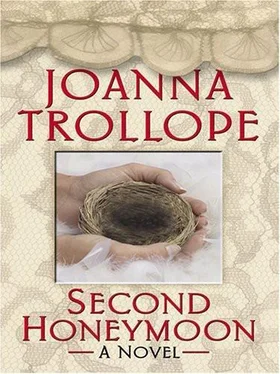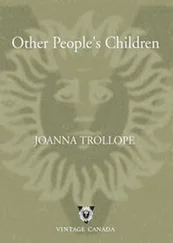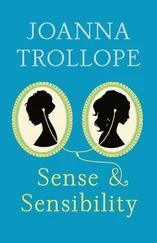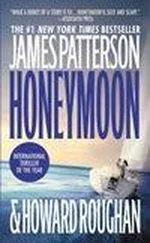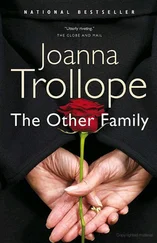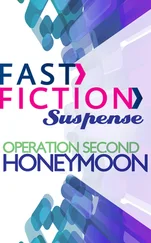‘It isn’t very grateful of you,’ Vivi said, on the telephone.
‘I’d be able to be grateful,’ Edie said, ‘if there weren’t strings attached. But I can’t go from longing for Ben to be back to playing being just married all over again in a single seamless movement’.
‘Poor Russell—’ ‘Poor?’
‘Perhaps he’s been waiting, all these years, to be other than on the edge of your peripheral vision’.
‘He liked family life, you know. He liked the children. He adores Rosa’.
‘Men love women,’ Vivi said. ‘Women love children. Children love hamsters’.
‘Oh, I know. I know’.
‘You just don’t know how lucky you are’. ‘Don’t start—’
‘I have to remind you sometimes’. Edie leaned against the wall. ‘Rosa’s lost her job’. ‘No! Poor girl—’
‘She sounded completely matter of fact. Wouldn’t let me sympathise, really. I said come back home—’ ‘I bet you did—’
‘And she said no, no, she was fine, she’d got friends who were helping’. Edie paused, and then she said, ‘I do find that hard. Friends, not family’.
‘Friends are the new family’.
‘Sometimes I wonder why I bother to turn to you for consolation’.
‘I know,’ Vivi said. ‘I won’t do drama, will I? I won’t do it because, compared to mine, your life isn’t drama. Speaking of which—’
‘Yes?’
‘What about drama? What about work?’ Edie sighed.
‘Nothing much. I must be turned down twenty times for every part I get. There’s a casting for an Ibsen next week—’
‘Yes?’
‘Mrs Alving. In Ghosts . I won’t get it’. ‘Edie . Why not?’
‘Because I won’t. Because I can’t feel about it at the moment. Because I’m all jangled up and raw—’ ‘And cross with Russell for being romantic’.
‘Yes’.
‘Edie,’ Vivi said, ‘I’ll ring you again when you have the manners, never mind the empathy, to remember to ask me a single question about me’.
Edie sat down at the kitchen table now and made space for her elbows among the papers. It was not like her, she told herself, to be so hopeless, to feel herself drifting, to be miserable and – Ben’s favourite word when he was small – grumpy. He’d say stressy, now, Edie thought, if he was still seven, and Rosa was eleven and Matt was thirteen, and there were still school mornings, with their inevitable chaos of uneaten things and forgotten things and unbrushed things. She’d imagined those times were timeless somehow, that either they would never end, or that she would change, gradually and peacefully, as they changed, so that she would be ready for the difference, ready to face a new chapter, ready, even, to confront herself.
She brought her hands up to her face and held it. That was the problem, really, that was the element that was proving so difficult, this business of knowing how to arrange oneself. For years, almost thirty of them, she had known what she was for, what she was supposed to do. Sure, she’d been passionate about the theatre at school – still couldn’t, with complete equanimity, replay those scenes with her parents in which she had insisted on applying for drama school rather than university -passionate enough to appear unmoved at being turned down by the National Youth Theatre, and to persist until she gained a place at RADA. But, if she was honest, it had all been a bit sketchy since: stints in regional repertory companies, stand-in presenter on children’s television, advertisements, short runs in strange plays in tiny theatres. Nothing – nothing to boast about exactly.
‘I’m a jobbing actress,’ she’d said for years, holding a child, carrying groceries, clutching dirty bedlinen. ‘I’m up for anything. As long as it’ll fit round the children’.
Secure in the essentialness of motherhood, she’d even, she recalled, been able to lecture herself. There’ll come a time, she’d told herself, when you’ll have to identify yourself without your children. They will simply shed you, like a snakeskin, and your support for them will become a need, your need. Motherhood, she’d declared grandly, will not be a proud, public banner any more, but a quiet, private admission. Rosa will take motherhood over and you, Edie, will have to submit to her supremacy. Well, the time had now come. And, like most anticipated things, the reality did not match the imagining. Rosa was years away in both circumstances and ambition from having a baby, and she, Edie, was as unprepared to surrender positive support for negative need as she possibly could be. Motherhood had been such a solace, had acceptably papered over so many cracks, had given her, if she was honest, such a seemly excuse for not risking failure or disappointment or loss of confidence, that she could not for the moment think what she was going to do, without it.
She took her hands away from her face and laid them in front of her, palms down on the table. On top of the pile about two feet away lay the copy of Ibsen’s plays that Russell had brought down from the bookcase on the first-floor landing when he heard about the casting for Ghosts , the student copy that she had had at RADA, full of her energetic underlinings. Ibsen had been obsessed by the past. He’d written once that ‘we sail with a corpse in the cargo’. Ibsen was, Edie decided, the very last thing she needed at the moment. She picked up a copy of the Islington Gazette that was lying close to her elbow, and covered the book with it. Out of sight: out of troubled mind.
Holding a telephone between his hunched shoulder and his ear, Matthew Boyd was writing down some information.
‘Open plan. Interior walls of glass brick. View of Tate Modern and Millennium Bridge. Four hundred thou -wow,’ Matthew said. ‘Four hundred thousand?’
‘That was what Ruth told me,’ the agent said.
Matthew made a face. What was an estate agent, who hardly knew her, doing calling Ruth Ruth? He said, ‘I don’t think—’ and the agent said, ‘Admittedly, top whack. But she said she could consider that if the place was right’.
‘She—’
‘And the value of lofts in Bankside have almost tripled since the mid-nineties’.
Matthew drew an angry line under his jottings. He and Ruth had not, as far as he could remember – and he was good at remembering – discussed Bankside. They had discussed Docklands and Hoxton and Clerkenwell, but not Bankside. Bankside was much more central and therefore much more expensive. The budget – putative, but shared, obviously – had been three hundred. Tops. Matthew added teeth to his line.
‘I’ve made an appointment for Ruth to see it,’ the agent said.
‘You—’
‘She asked for Saturday morning, so this is a courtesy call’.
‘A—’
‘Saturday morning at ten-thirty. It’s about three hundred square metres, by the way. Shall I tell Ruth or will you?’
Matthew wrote ‘Sod off’ in capital letters above the teeth.
‘I will,’ he said, and rang off.
He dropped the phone on his desk and shoved his chair back so violently that it cannoned into Blaise’s desk behind him. Blaise was on the telephone, handsfree. He put his hand over the mouthpiece.
‘Oy!’
Matthew stood up. He mouthed ‘Sorry’ in Blaise’s direction. Then he bent over his desk and retrieved his phone. Ruth’s was the first number in his speed-dial address book.
‘Hello,’ her voicemail said, cool and friendly. ‘This is Ruth Munro’s telephone. I’m away from my desk just now so please leave me a message’.
‘Ring me,’ Matthew said. He took a breath. ‘Please, I mean. Please ring me’.
He dropped the phone in his pocket and turned to make coffee-drinking gestures at Blaise. Blaise nodded. Matthew went quickly across the office, threading his way between the grey plastic desks, and made for the lifts. They had all, as usual, collected on the top floor. He made a face at himself in the brass panel that lined the wall between the lifts.
Читать дальше
